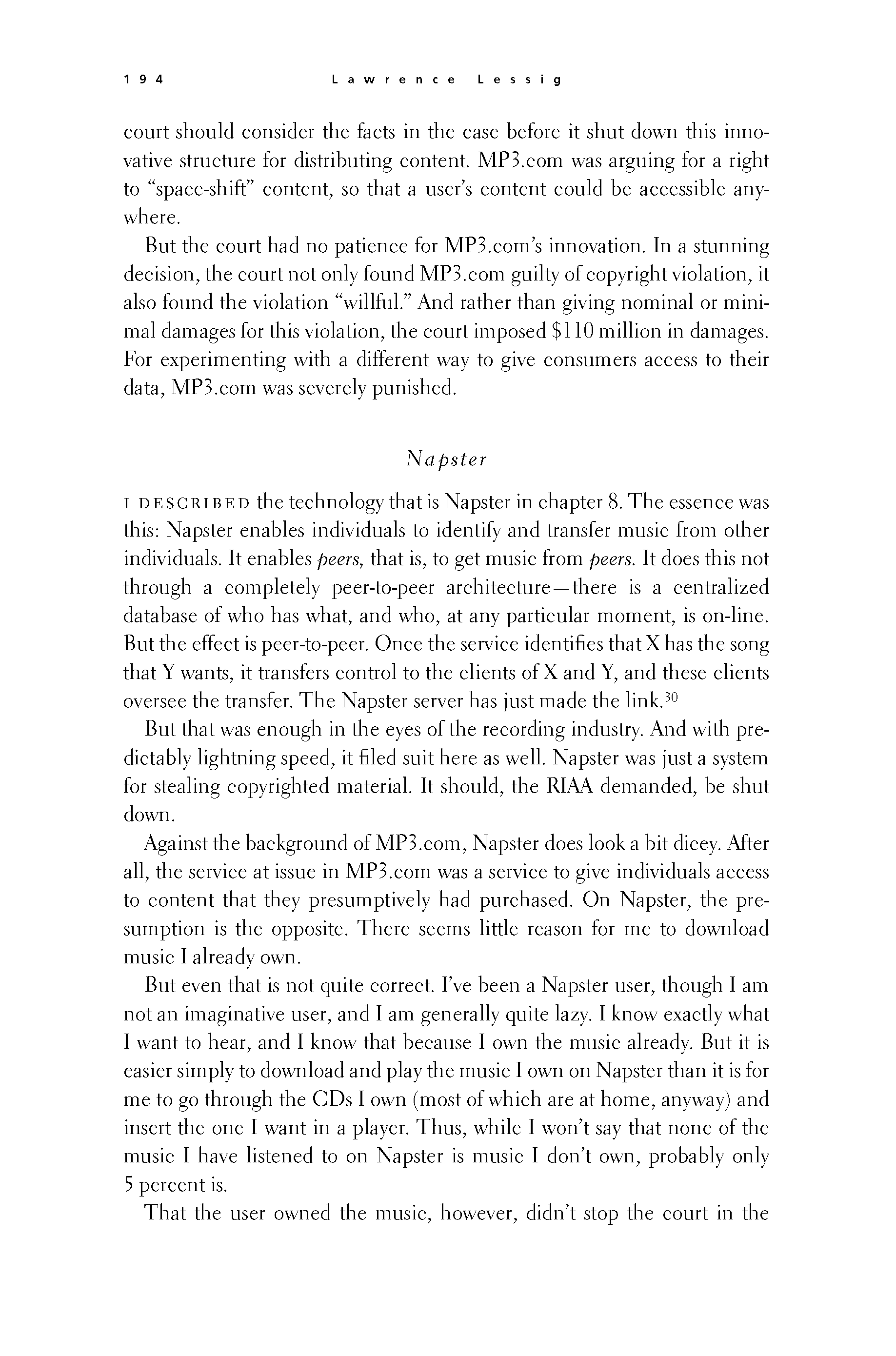 p193 _
-chap- _
toc-1 _
p194w _
toc-2 _
+chap+ _
p195
p193 _
-chap- _
toc-1 _
p194w _
toc-2 _
+chap+ _
p195
court should consider the facts in the case before it shut down this inno-
vative structure for distributing content. MP3.com was arguing for a right
to "space-shift" content, so that a user's content could be accessible any-
where.
But the court had no patience for MP3.com's innovation. In a stunning
decision, the court not only found MP3.com guilty of copyright violation, it
also found the violation "willful." And rather than giving nominal or mini-
mal damages for this violation, the court imposed $110 million in damages.
For experimenting with a different way to give consumers access to their
data, MP3.com was severely punished.
/tab\/tab\_Napster_/tab\/tab\
I described the technology that is Napster in Chapter 8. The essence was
this: Napster enables individuals to identify and transfer music from other
individuals. It enables _peers,_ that is, to get music from _peers._ It does this not
through a completely peer-to-peer architecture -- there is a centralized
database of who has what, and who, at any particular moment, is on-line.
But the effect is peer-to-peer. Once the service identifies that X has the song
that Y wants, it transfers control to the clients of X and Y, and these clients
oversee the transfer. The Napster server has just made the link.[11-30]
But that was enough in the eyes of the recording industry. And with pre-
dictably lightning speed, it filed suit here as well. Napster was just a system
for stealing copyrighted material. It should, the RIAA demanded, be shut
down.
Against the background of MP3.com, Napster does look a bit dicey. After
all, the service at issue in MP3.com was a service to give individuals access
to content that they presumptively had purchased. On Napster, the pre-
sumption is the opposite. There seems little reason for me to download
music I already own.
But even that is not quite correct. I've been a Napster user, though I am
not an imaginative user, and I am generally quite lazy. I know exactly what
I want to hear, and I know that because I own the music already. But it is
easier simply to download and play the music I own on Napster than it is for
me to go through the CDs I own (most of which are at home, anyway) and
insert the one I want in a player. Thus, while I won't say that none of the
music I have listened to on Napster is music I don't own, probably only
5 percent is.
That the user owned the music, however, didn't stop the court in the
[[194]]
p193 _
-chap- _
toc-1 _
p194w _
toc-2 _
+chap+ _
p195